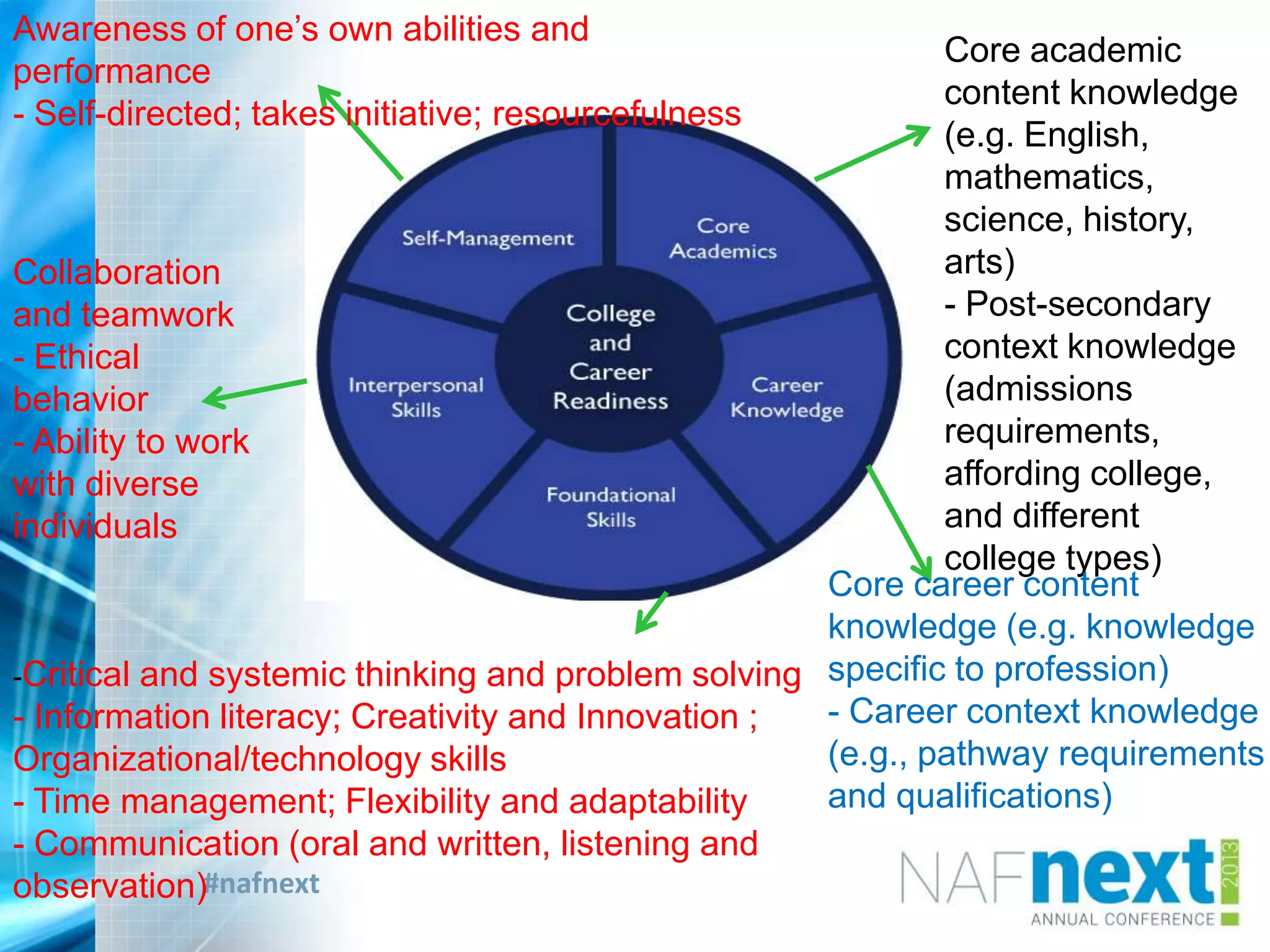The document provides an overview of work-based learning (WBL), discussing its significance and how to create a WBL plan for educational institutions. It outlines the benefits of implementing WBL, such as state program approval and enhancing career readiness for students, while emphasizing the development of both academic and interpersonal skills. Strategies for engaging industry partners and incorporating various learning experiences are also highlighted as essential components of effective WBL initiatives.



















